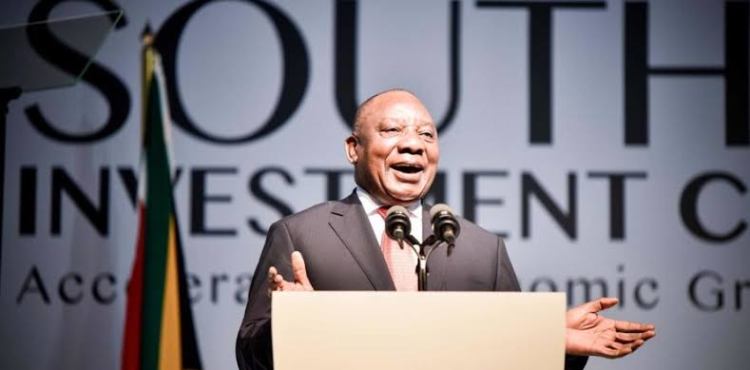Growing Optimism from Business and Citizens Boosts Economic Outlook
In the 100 days since the Government of National Unity (GNU) took office, President Cyril Ramaphosa has observed a significant rise in confidence regarding South Africa's future, with increased optimism from both local citizens and international investors. In his weekly newsletter, the President noted that this growing support for government reforms is reflected in recent opinion polls and economic indicators.
A poll by Ipsos showed that the number of South Africans who believe the country is on the right path has doubled compared to the surveys conducted in April and June 2024. President Ramaphosa highlighted that this renewed confidence is echoed by business leaders, both in South Africa and abroad, particularly during his recent meetings in Beijing and New York, and those of Deputy President Paul Mashatile in London.
The September Business Confidence Index, published by the Bureau of Economic Research and Rand Merchant Bank, pointed to "cautious optimism" about improving business conditions. The report cited improved electricity supply and political stability following the GNU's formation as key factors bolstering economic confidence.
“Sentiment is more than just a positive feeling. It reflects real developments in the economy. Business confidence influences decisions that translate into tangible benefits, like increased investments and job creation,” said the President.
The positive sentiment, according to Ramaphosa, will also strengthen South Africa’s fiscal health. A stronger economic outlook improves the country's credit rating, which in turn lowers borrowing costs and increases government capacity to invest in infrastructure, education, healthcare, and basic services.
Additionally, a strengthened currency, buoyed by investor confidence, has eased the cost of imports like oil, reducing fuel prices and helping to lower the overall cost of living for South Africans. “Increased business confidence also leads to higher private investment in the economy, creating more jobs and boosting economic activity,” Ramaphosa added.
The President attributed much of this improved sentiment to the GNU's steady implementation of reforms aimed at resolving key challenges. A crucial victory has been in tackling the country’s energy crisis, with South Africa experiencing over 200 consecutive days without load shedding. This success has spurred significant investment in the energy sector, which is expected to unlock further economic potential.
Reforms in the logistics sector, particularly improvements in the operational efficiency of ports and rail networks, are also beginning to take shape. These developments are not only enhancing economic activity but are also positively impacting the daily lives of South Africans.
While economic growth has not yet reached its full potential, Ramaphosa expressed confidence that the foundation for sustained progress is being laid. "It is still early days for the Government of National Unity. The growth of our economy is yet to accelerate, but our growth prospects are being revised upwards, and we are moving in the right direction," he stated.
President Ramaphosa concluded by emphasizing the need to maintain the current momentum, encouraging all South Africans to work together to build on this progress. "The improved confidence of the South African people and the positive sentiment among investors are well-founded. Now, we must continue to work together to bring about real change in the lives of all South Africans," he said.
As the GNU enters its next phase, the President remains optimistic that continued reforms and collaboration between government, business, and citizens will lead to long-term economic growth and stability for South Africa.











